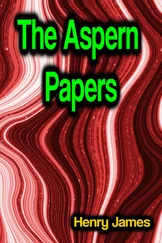Henry James - The American Scene
Здесь есть возможность читать онлайн «Henry James - The American Scene» — ознакомительный отрывок электронной книги совершенно бесплатно, а после прочтения отрывка купить полную версию. В некоторых случаях можно слушать аудио, скачать через торрент в формате fb2 и присутствует краткое содержание. Жанр: unrecognised, на английском языке. Описание произведения, (предисловие) а так же отзывы посетителей доступны на портале библиотеки ЛибКат.
- Название:The American Scene
- Автор:
- Жанр:
- Год:неизвестен
- ISBN:нет данных
- Рейтинг книги:3 / 5. Голосов: 1
-
Избранное:Добавить в избранное
- Отзывы:
-
Ваша оценка:
- 60
- 1
- 2
- 3
- 4
- 5
The American Scene: краткое содержание, описание и аннотация
Предлагаем к чтению аннотацию, описание, краткое содержание или предисловие (зависит от того, что написал сам автор книги «The American Scene»). Если вы не нашли необходимую информацию о книге — напишите в комментариях, мы постараемся отыскать её.
The American Scene — читать онлайн ознакомительный отрывок
Ниже представлен текст книги, разбитый по страницам. Система сохранения места последней прочитанной страницы, позволяет с удобством читать онлайн бесплатно книгу «The American Scene», без необходимости каждый раз заново искать на чём Вы остановились. Поставьте закладку, и сможете в любой момент перейти на страницу, на которой закончили чтение.
Интервал:
Закладка:
Why was the whole connotation so delicately Arcadian, like that of the Arcadia of an old tapestry, an old legend, an old love-story in fifteen volumes, one of those of Mademoiselle de ScudŽi? Why, in default of other elements of the higher finish, did all the woodwalks and nestled nooks and shallow, carpeted dells, why did most of the larger views themselves, the outlooks to purple crag and blue horizon, insist on referring themselves to the idyllic type in its purity?—as if the higher finish, even at the hand of nature, were in some sort a perversion, and hillsides and rocky eminences and wild orchards, in short any common sequestered spot, could strike one as the more exquisitely and ideally Sicilian, Theocritan, poetic, romantic, academic, from their not bearing the burden of too much history. The history was there in its degree, and one came upon it, on sunny afternoons, in the form of the classic abandoned farm of the rude forefather who had lost patience with his fate. These scenes of old, hard New England effort, defeated by the soil and the climate and reclaimed by nature and time—the crumbled, lonely chimney-stack, the overgrown threshold, the dried-up well, the cart-track vague and lost—these seemed the only notes to interfere, in their meagreness, with the queer other, the larger, eloquence that one kept reading into the picture. Even the wild legend, immediately local, of the Indian who, having, a hundred years ago, murdered a husbandman, was pursued, by roused avengers, to the topmost peak of Chocorua Mountain, and thence, to escape, took his leap into the abyss—even so sharp an echo of a definite far-off past, enriching the effect of an admirable silvered summit (for Chocorua Mountain carries its grey head quite with the grandest air), spent itself in the mere idleness of the undiscriminated, tangled actual. There was one thinkable reason, of course, for everything, which hung there as a possible answer to any question, should any question insist. Did one by chance exaggerate, did one rhapsodize amiss, and was the apparent superior charm of the whole thing mainly but an accident of one's own situation, the state of having happened to be deprived to excess—that is for too long—of naturalism in quantity? Here it was in such quantity as one hadn't for years had to deal with; and that might by itself be a luxury corrupting the judgment.
It was absurd, perhaps, to have one's head so easily turned; but there was perfect convenience, at least, in the way the parts of the impression fell together and took a particular light. This light, from whatever source proceeding, cast an irresistible spell, bathed the picture in the confessed resignation of early autumn, the charming sadness that resigned itself with a silent smile. I say "silent" because the voice of the air had dropped as forever, dropped to a stillness exquisite, day by day, for a pilgrim from a land of stertorous breathing, one of the windiest corners of the world; the leaves of the forest turned, one by one, to crimson and to gold, but never broke off: all to the enhancement of this strange conscious hush of the landscape, which kept one in presence as of a world created, a stage set, a sort of ample capacity constituted, for—well, for things that wouldn't, after all, happen: more the pity for them, and for me and for you. This view of so many of the high places of the hills and deep places of the woods, the lost trails and wasted bowers, the vague, empty, rock-roughened pastures, the lonely intervals where the afternoon lingered and the hidden ponds over which the season itself seemed to bend as a young bedizened, a slightly melodramatic mother, before taking some guilty flight, hangs over the crib of her sleeping child—these things put you, so far as you were preoccupied with the human history of places, into a mood in which appreciation became a positive wantonness and the sense of quality, plucking up unexpectedly a spirit, fairly threatened to take the game into its hands. You discovered, when once it was stirred, an elegance in the commonest objects, and a mystery even in accidents that really represented, perhaps, mere plainness unashamed. Why otherwise, for instance, the inveterate charm of the silver-grey rock cropping through thinly-grassed acres with a placed and "composed" felicity that suggested the furniture of a drawing-room? The great boulders in the woods, the pulpit-stones, the couchant and rampant beasts, the isolated cliffs and lichened cathedrals, had all, seen, as one passed, through their drizzle of forest light, a special New Hampshire beauty; but I never tired of finding myself of a sudden in some lonely confined place, that was yet at the same time both wide and bright, where I could recognize, after the fashion of the old New Hampshire sociability, every facility for spending the day. There was the oddity—the place was furnished by its own good taste; its bosky ring shut it in, the two or three gaps of the old forgotten enclosure made symmetrical doors, the sweet old stones had the surface of grey velvet, and the scattered wild apples were like figures in the carpet.
It might be an ado about trifles—and half the poetry, roundabout, the poetry in solution in the air, was doubtless but the alertness of the touch of autumn, the imprisoned painter, the Bohemian with a rusty jacket, who had already broken out with palette and brush; yet the way the colour begins in those days to be dabbed, the way, here and there, for a start, a solitary maple on a woodside flames in single scarlet, recalls nothing so much as the daughter of a noble house dressed for a fancy-ball, with the whole family gathered round to admire her before she goes. One speaks, at the same time, of the orchards; but there are properly no orchards where half the countryside shows, all September, the easiest, most familiar sacrifice to Pomona. The apple-tree, in New England, plays the part of the olive in Italy, charges itself with the effect of detail, for the most part otherwise too scantly produced, and, engaged in this charming care, becomes infinitely decorative and delicate. What it must do for the too under-dressed land in May and June is easily supposable; but its office in the early autumn is to scatter coral and gold. The apples are everywhere and every interval, every old clearing, an orchard; they have "run down" from neglect and shrunken from cheapness—you pick them up from under your feet but to bite into them, for fellowship, and throw them away; but as you catch their young brightness in the blue air, where they suggest strings of strange-coloured pearls tangled in the knotted boughs, as you note their manner of swarming for a brief and wasted gaiety, they seem to ask to be praised only by the cheerful shepherd and the oaten pipe. The question of the encircled waters too, larger and smaller—that again was perhaps an ado about trifles; but you can't, in such conditions, and especially at first, resist the appeal of their extraordinarily mild faces and wooded brims, with the various choice spots where the great straight pines, interspaced beside them, and yielding to small strands as finely curved as the eyebrows of beauty, make the sacred grove and the American classic temple, the temple for the worship of the evening sky, the cult of the Indian canoe, of Fenimore Cooper, of W. C. Bryant, of the immortalizable water-fowl. They 1ook too much alike, the lakes and the ponds, and this is, indeed, all over the world, too much a reproach to lakes and ponds—to all save the pick of the family, say, like George and Champlain; the American idea, moreover, is too inveterately that woods shall grow thick to the water. Yet there is no feature of grace the landscape could so ill spare—let alone one's not knowing what other, what baser, promiscuity mightn't oppress the banks if that of the free overgrowth didn't. Each surface of this sort is a breathing-space in the large monotony; the rich recurrence of water gives a polish to the manner itself, so to speak, of nature; thanks to which, in any case, the memory of a characteristic perfection attaches, I find, to certain hours of declining day spent, in a shallow cove, on a fallen log, by the scarce-heard plash of the largest liquid expanse under Chocorua; a situation interfused with every properest item of sunset and evening star, of darkening circle of forest, of boat that, across the water, put noiselessly out—of analogy, in short, with every typical triumph of the American landscape "school," now as rococo as so many squares of ingenious wool-work, but the remembered delight of our childhood. On terra firma, in New England, too often dusty or scrubby, the guarantee is small that some object at variance, cruelly at variance, with the glamour of the landscape school may not "put out." But that boat across the water is safe, is sustaining as far as it goes; it puts out from the cove of romance, from the inlet of poetry, and glides straight over, with muffled oar, to the—well, to the right place.
Читать дальшеИнтервал:
Закладка:
Похожие книги на «The American Scene»
Представляем Вашему вниманию похожие книги на «The American Scene» списком для выбора. Мы отобрали схожую по названию и смыслу литературу в надежде предоставить читателям больше вариантов отыскать новые, интересные, ещё непрочитанные произведения.
Обсуждение, отзывы о книге «The American Scene» и просто собственные мнения читателей. Оставьте ваши комментарии, напишите, что Вы думаете о произведении, его смысле или главных героях. Укажите что конкретно понравилось, а что нет, и почему Вы так считаете.












